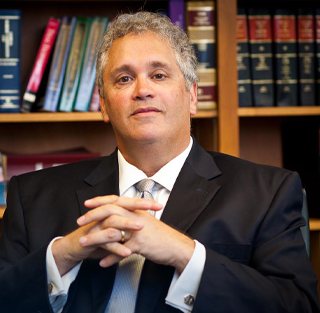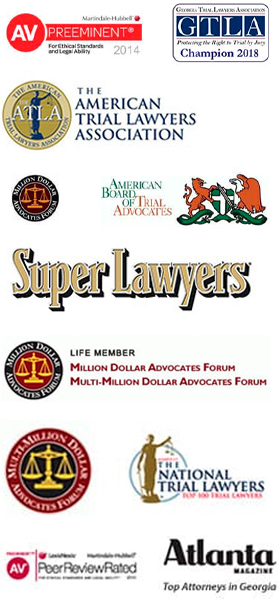Events Leading to Catastrophic Injuries
Atlanta personal injury lawyers tend to see more catastrophic injury cases than decades past partly because of advances in modern medicine saving lives that otherwise might have been lost. When caused by negligence, catastrophic injury may be grounds for substantial compensation. However, these differ from typical personal injury claims (which are relatively straightforward) due to the permanent or extensive damage involved. Total compensation may be more difficult to tally when the “price” of an injury extends beyond merely medical bills and lost wages.
The cause of a catastrophic injury can have a substantial impact on whether as person can recover damages for those injuries and for how much. It’s important to identify all possible defendants when examining your legal options.
Automobile Accidents
Passenger vehicle collisions are unfortunately far too common. The Atlanta Journal-Constitution reported fatal crashes in Georgia spike more than one-third in just two years recently, driven by a combination of cheap gasoline and speed, alcohol impairment and smartphone-driven distraction. Types of crashes that prove especially devastating (and most likely to result in catastrophic injuries) include:
- Commercial truck accidents.
- Motorcycle accidents.
- Pedestrian accidents.
- Bicycle accidents.
- Rideshare accidents.
The reason these crashes tend to result in injuries that are more severe largely has to do with the disparity of vehicle sizes. Commercial trucks can weigh upwards of 80,000 pounds, while an average car weighs 2,800 pounds and even the average sport utility vehicle and light truck only weighs about 4,000 pounds. Meanwhile, motorcyclists, bicyclists and pedestrians are vulnerable road users, meaning not only do is there a size disparity between vehicles, they also lack the same protection as motor vehicle occupants and share roads that largely weren’t designed with their safety in mind. All this makes them more prone to serious injury, such as broken bones, head injuries, spinal cord injuries, organ damage or severe burns.
Defendants in Georgia crash-related injuries can range from negligent drivers (and their auto insurers) to one’s own uninsured/ underinsured auto insurer, commercial truck carriers/ owners, negligent driver employers, vehicle owners, bar/ nightclub/ restaurant owners (under Georgia’s dram shop law), auto repair shop owners (negligent repairs) and auto manufacturers (defective design of motor vehicles or parts).
Further Reading: Were You Injured in an Uber or Lyft Accident in Atlanta, Georgia?
Falls Leading to Catastrophic Injuries
Falls are a leading cause of serious injury and death among workers, children and the elderly (especially those who reside in nursing homes and assisted living facilities.
The U.S. Centers for Disease Control and Prevention reports 1 out of every 5 falls causes serious injuries, such as broken bones or a head injury. Every single year, more than 800,000 people are hospitalized due to a fall-related injury, most commonly because of a hip fracture or traumatic brain injury (falls being the most common cause of both types of injury). Fall-related costs total $50 billion annually.
Falls also account for one-third of all work-related deaths, according to OSHA, and a significant number of serious injuries.
Fall-related incidents that occur in a nursing home, hospital or other setting while one is under the care of medical professionals may need to be pursue under a theory of medical malpractice. Those that occur while one is acting in the course and scope of employment may be limited by exclusive remedy rules to no-fault workers’ compensation benefits (though negligent third-parties, such as property owners, construction contractors or ladder manufacturers may be held separately liable). Property owners that fail to fix dangerous conditions like slippery floors or hazardous steps can be held liable under Georgia’s premise liability laws.
Medical Malpractice
We trust our doctors, surgeons, pharmacists, dentists, nurses, emergency responders and therapists to help us heal. When those efforts fall short of the applicable standards, it can cause life-altering injuries and illnesses. This is called medical malpractice.
For example, medical complications were responsible for 2.2 percent of spinal cord injuries among men and 5.1 percent among women.
Georgia law – specifically O.C.G.A. § 9-3-70 – defines medical malpractice as either medical, diagnostic, treatment or are service rendered by a health professional, public or private hospital, nursing home, clinic, hospital authority, facility or institution or by any officer, agent or employee thereof who fails to provide that care according to the applicable standard of care. Medication errors, delayed or missed diagnoses, improper patient lifting procedures, negligent prenatal care or birthing errors and other mistakes can have severe and lasting injuries. These cases are complex, and you must have an experienced medical malpractice attorney to help you unravel it.
Workplace Accidents
Georgia’s private industry employers reported 82,000 non-fatal workplace injuries and illnesses to the U.S. Bureau of Labor Statistics in a single year. Of those, 44,500 were classified as “severe” in nature, involving days away from work, job transfer or restriction. Those in transportation, utilities, education and health services had a disproportionate number of serious injuries.
If you suffer a catastrophic injury in a workplace accident, your first claim is likely to be for no-fault workers’ compensation benefits, which are part of an accident insurance program paid by employers to provide injured workers with medical, rehabilitation and income benefits if you’re hurt on-the-job. You’re entitled to have all authorized medical bills covered, as well as income benefits equivalent to two-thirds your average weekly wage. Although these benefits are only available for 400 weeks, those with injuries “catastrophic in nature” may be entitled to lifetime benefits.
However, when representing a worker who has been catastrophically injured, our Atlanta injury lawyers recognize the financial limitations of the workers’ compensation process. That’s why it’s vitally important that we determine whether tort claims exist against negligent third-parties, such as motorists, property owners and product manufacturers. Compensation in third-party cases goes beyond what one can expect to receive in a workers’ compensation claim, offering the opportunity to collect full wage loss benefits and damages for losses like pain and suffering, emotional anguish and loss of life enjoyment.
Further Reading: What is Pain and Suffering and How Is Compensation Value Calculated?
Violent Attacks
When an act of violence results in catastrophic injuries, of course we look to hold the individual attacker responsible in the criminal justice system. But that isn’t going to help the person who suffers serious and lasting injury that has left them scarred and disfigured, unable to care for themselves or incapable of returning to work.
Although those injured can pursue financial damages directly against their attacker for an intentional tort, that often proves difficult because most insurers won’t cover injuries caused by an insured’s intentional act, and most attackers lack the individual assets to cover the victim’s severe damages. However, there are often valid third-party claims.
For example, if a barroom brawl leads to serious injuries for a patron, that patron might have a valid premises liability claim against the bar owner for negligent security. Similar claims have been successfully filed against hotels, apartment complexes and amusement parks.
The bottom line for anyone who has suffered catastrophic injuries: You may have many viable avenues of recovery, but it’s imperative to involve an experienced injury attorney who understands your legal options and can work diligently to help you pursue them.
The foregoing answers are not legal advice and are merely a general overview. You are advised to consult a lawyer to address your specific situation regarding your situation. For more information or to inquire about a free consultation, contact Stephen D. Apolinsky, an experienced Atlanta catastrophic injury attorney, at Apolinsky & Associates at (404) 377-9191 or email him at steve@aa-legal.com.



